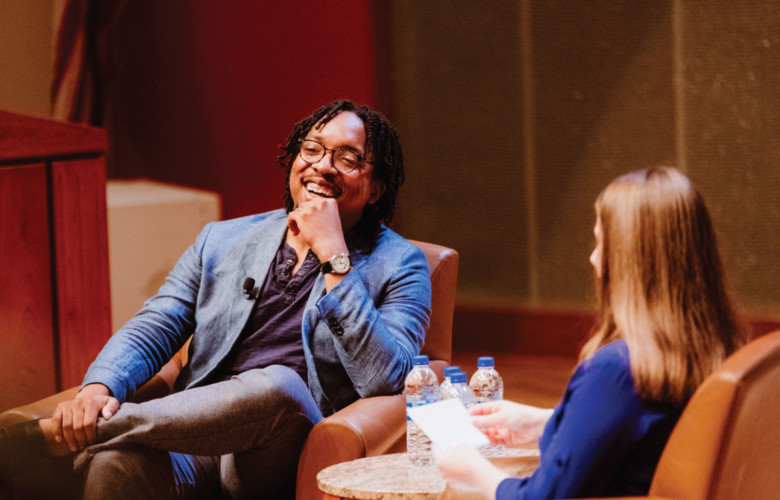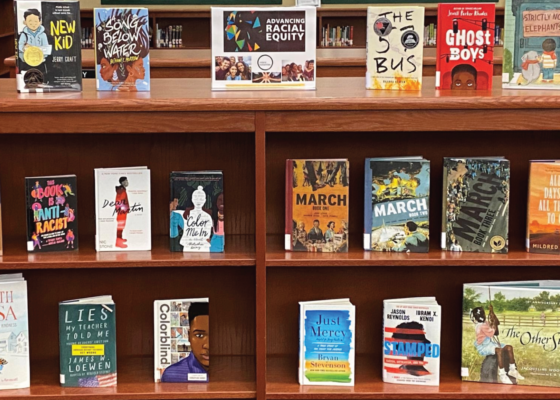5 things we learned from Vann R. Newkirk II
July 6, 2022In June 2022, we hosted an INconversation with Vann R. Newkirk II at the Central Branch of the Indianapolis Public Library. We’re grateful to Vann and moderator Rebecca Thiele, environment and energy…
In June 2022, we hosted an INconversation with Vann R. Newkirk II at the Central Branch of the Indianapolis Public Library. We’re grateful to Vann and moderator Rebecca Thiele, environment and energy issues reporter for Indiana Public Broadcasting News, for their thoughtful and thought-provoking exchange. If you missed the conversation, you can watch it here.
Here are some moments that stood out to us:
1. Storytelling for everyone. Newkirk often thinks about how to engage people with different priorities and who might not share his perspective, especially on topics like climate change. “Everyone cares about what happens to their favorite natural places. They don’t like pollution. They love trees or hunting or fishing. Connecting with people on that level — with stories — is a start.” Journalists need to think about how their work can be more tangible and closer to how people live everywhere, including outside the big cities.
2. Don’t have to reinvent the wheel. How do we get past today’s disinformation crisis? Go back to what worked in the past. “Reinvest in local outlets. Support those that still exist and revitalize ones that have folded.” There is a long history of the Black press telling important stories at great personal risk, journalists like Ethel Payne, Ida B. Wells, W.E.B. Du Bois and newspapers like the Chicago Defender, Indianapolis Recorder and Baltimore Afro-American. Continue this legacy by supporting community-owned journalism now.
3. We’re not all in this together. The record of environmental disasters in human history shows that these events tend to amplify the dysfunction in human society and disproportionately affect poor people, specifically people of color. How climate change impacts us now reflects our built environment, our political choices and systemic racism, for example in the effects of recent record heat events that exacerbate existing inequities. Even when we rebuild after disasters, we see this theme continue in wealth transfer, with money being extracted from poor communities of color and consolidated in white communities.
4. Because this is home. Why do communities choose to stay in areas prone to natural disasters or that are the sites of concentrated pollution? There is a tendency, Newkirk said, for some to trivialize what place means to people. But when you think about the lived experiences of individuals, especially those descended from people who were enslaved, there is a deep connection to place and identity there. We have to make space for compassion and the things that make us human in our conversations and actions.
5. Your next listen. Newkirk is working on a podcast challenging what is widely seen as the triumphant end of the Civil Rights Era, an end tragically punctuated by the assassination of Martin Luther King Jr. Who really won? While you wait for the premiere of that project, he recommended spending time with these other thought-provoking podcasts: Seen On Radio, The Experiment, The Bomb, Throughline, This Land, La Brega and White Lies.
This program is part of the “Democracy and the Informed Citizen” initiative, administered by the Federation of State Humanities Councils. The initiative seeks to deepen the public’s knowledge and appreciation of the vital connections between democracy, the humanities, journalism, and an informed citizenry. We thank The Andrew W. Mellon Foundation for their generous support of this initiative and the Pulitzer Prizes for their partnership.
Locally, this program was made possible with the support of WFYI, Indiana Public Broadcasting News, the Indianapolis Public Library and New America.



